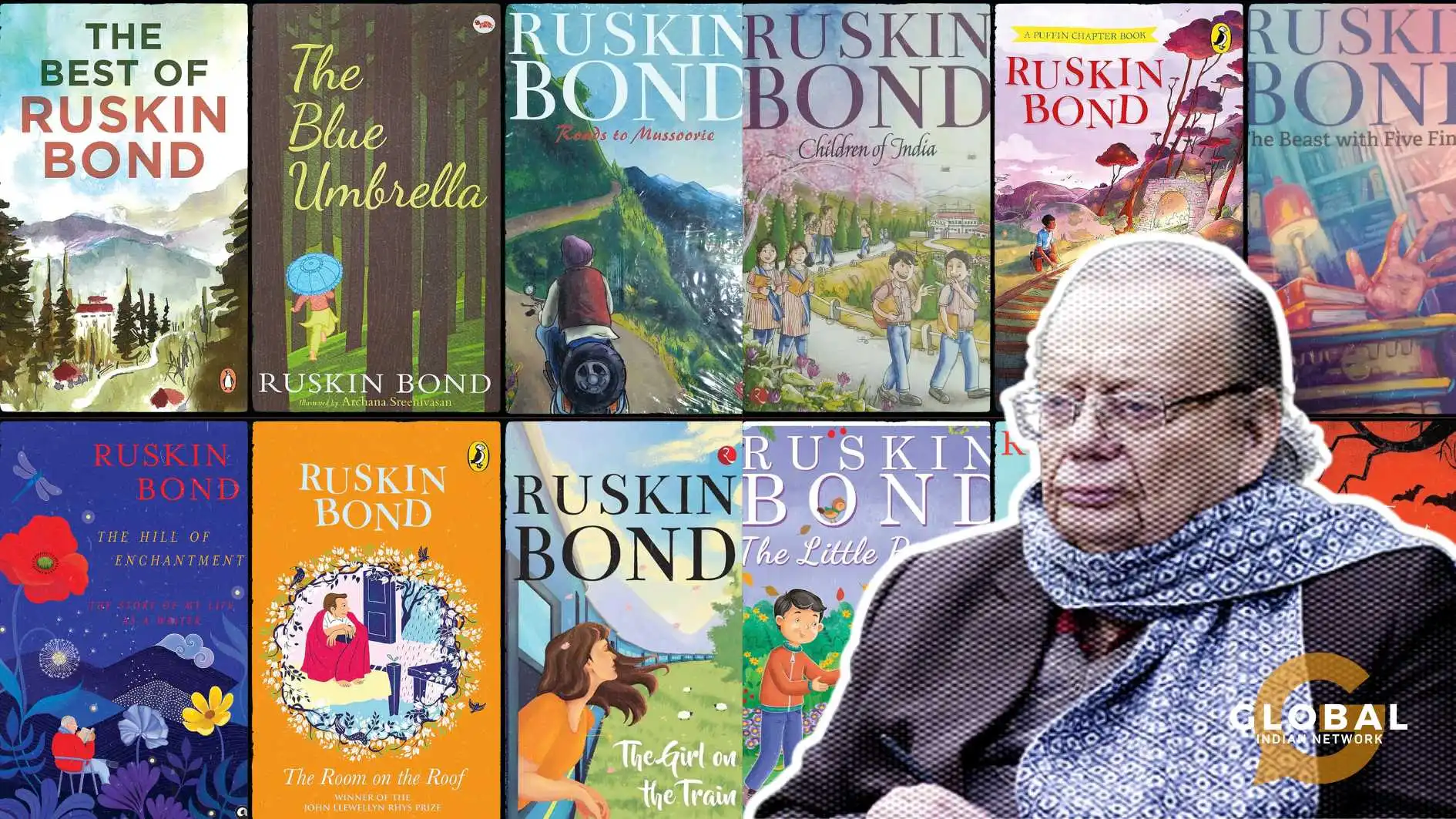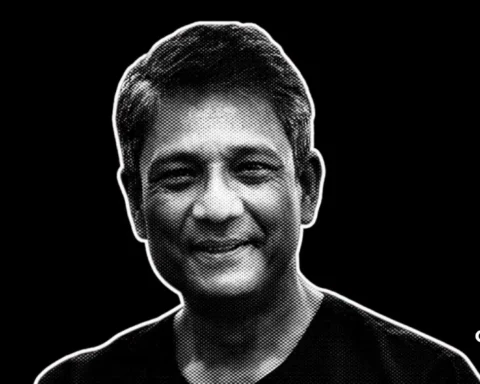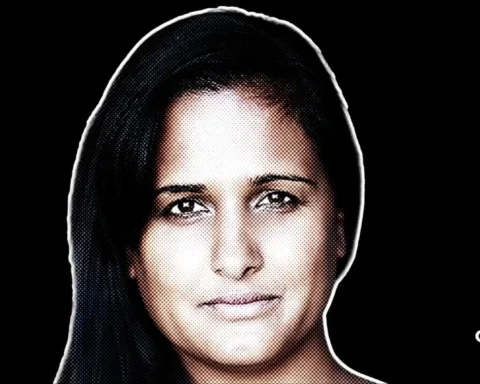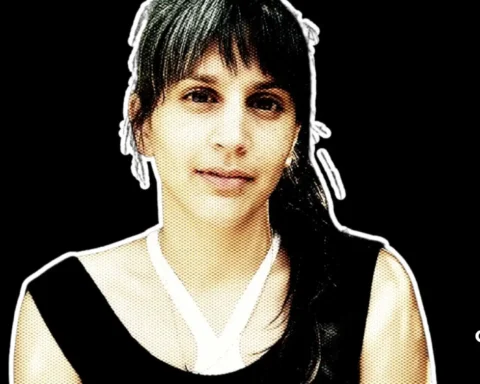I was in my primary classes when I first read in my GK books about the legendary patron saint of tiny readers. I wasn’t an avid reader back then (can’t say about now though), hence I was unaware of his little fantasy world. The year was 2022, and I was in Class 10 when I first discovered one of his works, ‘A Face In The Dark’. I read it as a part of the academic syllabus- not something I would ‘read’ as a pastime, and that made me kind of constricted to his wide persona.
Perched in his tranquil Landour home, surrounded by the rustling of deodar trees and the laughter of distant school children, Ruskin Bond continues to do what he has done for over multiple decades- write. Born on 19 May 1934 in Kasauli, Bond grew up between hill stations, small towns, and the bustling cities of British India. His early years were filled with both wonder and loss- the most significant being the death of his father when he was just ten. Read this article on Ruskin Bond biography to know more.
Table of Contents
Ruskin Bond Biography: Early Beginnings and First Success
Ruskin Bond’s biography is incomplete without mentioning his remarkably early start. At sixteen, he published his first short story, Untouchable.
After a few years in England and a stint in Delhi’s literary circles, Bond returned to the Himalayas- settling in Mussoorie, where the hills became both his muse and his director. He also mentions that, besides his liking of this place, it was close to the editors and publishers in Delhi.
For four years, he was an editor for a magazine, before he wrote for Penguin Publishers, where he published two of his novels- ‘The Room on the Roof’ and ‘Vagrants in the Valley’. Penguin India then published a collection of short stories the following year. The Room on the Roof, a semi-autobiographical coming-of-age novel about a lonely Anglo-Indian boy named Rusty, won the John Llewellyn Rhys Prize in 1957 and set the stage for a career that would bridge generations.

A Prolific Literary Career
Down the years, Bond has written more than 500 works that include novels, essays, poems, and over fifty books for children. His writing is deceptively simple, encompassing everyday moments, small towns, friendships, monsoons, ghosts, and the slow magic of life in the hills.
For Bond, writing is not merely a profession but a way of life, an unshakable daily ritual.
“I actually write for two to three hours every day. You can’t retire. One should never retire in life. That’s a great mistake,” he affirms with conviction. To him, the act of creating is as essential as breathing; it keeps the mind nimble, the spirit engaged, and the heart young. In his world, there is no finish line for passion, only the steady, unbroken rhythm of doing what you love, for as long as life allows.
According to the Ruskin Bond biography, the craft of writing thrives best in the stillness of solitude. “A writer needs solitude. You don’t want loneliness, but occasionally you need to be by yourself,” he says, distilling decades of experience into a simple truth. To him, solitude is not about shutting out the world, but rather about creating a space where thoughts can wander freely, where stories have the room to grow without interruption.
Over the years, Bond has always had what he calls a “quiet corner,” a personal retreat where the noise of life fades and the page becomes his closest companion. This haven, whether a desk by the window or a chair tucked into a quiet room, has been his constant ally in shaping the gentle, human tales that have touched generations of readers. “I’m very lucky that way,” he adds, aware that not every writer is blessed with such a sanctuary.
In Our Trees Still Grow in Dehra, which won the Sahitya Akademi Award in 1992, Bond captures the cadence of hill life with tenderness and precision. His “Rusty” series follows the adventures and misadventures of a lonely boy growing up in India, how he secretly befriends Indian boys in the local marketplace, drawn to their warmth and culture, and goes on hidden adventures away from Harrison’s strict rules. Eventually, yearning for independence, he decides to break free from his guardian’s control and head to England. The character is modelled on Bond’s own adolescence, and his debut novel, The Room on the Roof, written at age 17, is a semi-autobiographical account of Rusty’s life.
From Page to Screen
Ruskin Bond’s biography also includes his notable adaptations. His stories have been adapted into films like Junoon (1978), The Blue Umbrella (2005), and 7 Khoon Maaf (2011), as well as television series like Ek Tha Rusty. Yet, despite the fame, he loves to touch grass, valuing strawberry milkshakes, long drives along the Landour-Mussoorie road, and conversations with strangers in local bookshops over literary celebrity. He says that he never writes intending to see his stories on the big screen, but does not mind if they are adapted.
Recognition and Awards
Bond’s illustrious career has been marked by a wide array of prestigious honors that reflect his enduring impact on literature. As mentioned earlier, his award collection began with the John Llewellyn Rhys Prize in 1957 for his debut novel The Room on the Roof, followed by the Sahitya Akademi Award in 1992 for Our Trees Still Grow in Dehra. The Government of India recognized his literary contributions with the Padma Shri in 1999 and the Padma Bhushan in 2014.
In 2012, the Bal Sahitya Puraskar celebrated his exceptional legacy in children’s literature. Bond earned multiple lifetime achievement accolades, including from the Crossword Book Awards (2016), the Chandigarh Literary Society (2017), and the Dehradun Literature Festival (2023). The Uttarakhand Gaurav Samman, one of the state’s highest civilian honors, was conferred upon him in 2021, and in 2024, he received the Ramnath Goenka Sahitya Samman for his lifetime achievements. In a crowning recognition of his literary stature, he was awarded the Sahitya Akademi Fellowship, which is the Akademi’s highest honor, in 2021, which was conferred at his Mussoorie residence due to health reasons.
Conclusion
Even at ninety-one, Bond writes daily, “I still write by hand. I don’t use a computer, and I have thrown away my old typewriter as it was giving me neck pain. I write entirely by hand, and nobody seems to mind.” His latest works, such as Another Day in Landour, read like conversations with an old friend- full of wry humor, wisdom, and the comforting knowledge that stories, like seasons, always return.
Ruskin Bond biography is a testament that for millions of readers, Bond is not just an author but a companion through rainy afternoons, train journeys, and childhood summers. His legacy lies not in grand literary experiments but in his ability to make readers feel at home- in his pages, in his hills, and in his heart.

FAQs
Where does Ruskin Bond live currently?
Ruskin Bond resides in the quiet hill town of Landour, Mussoorie, Uttarakhand. He has been living there for decades in a cozy home called Ivy Cottage, surrounded by books, greenery, and the scenic beauty of the Himalayas. This peaceful setting has inspired much of his writing.
Was Ruskin Bond Indian?
Yes, Ruskin Bond is an Indian author of British descent. He was born in Kasauli, Himachal Pradesh, in 1934, during the British colonial period. Although his ancestry is British, his life, work, and identity are deeply rooted in India, which he has always called home.
When was Ruskin Bond born, and how old is he now?
Ruskin Bond was born on May 19, 1934, which makes him 91 years old in 2025. Despite his age, he continues to write actively, producing stories, essays, and poems with the same warmth and simplicity that have defined his career for decades.
Which is the best story of Ruskin Bond?
While “best” is subjective, many readers consider The Room on the Roof, his debut novel, to be one of his finest works. The Blue Umbrella and Our Trees Still Grow in Dehra are also widely beloved, along with short stories like The Night Train at Deoli.
Is Ruskin Bond married or not?
Ruskin Bond has never married. He has often spoken about being content with his single life, dedicating his time to writing, reading, and enjoying the company of his extended family and friends.
Is Ruskin Bond still alive?
Yes, Ruskin Bond is alive and well. He continues to live and write in Mussoorie, meeting fans, publishing new works, and sharing his love for storytelling even in his ninety-first year.









